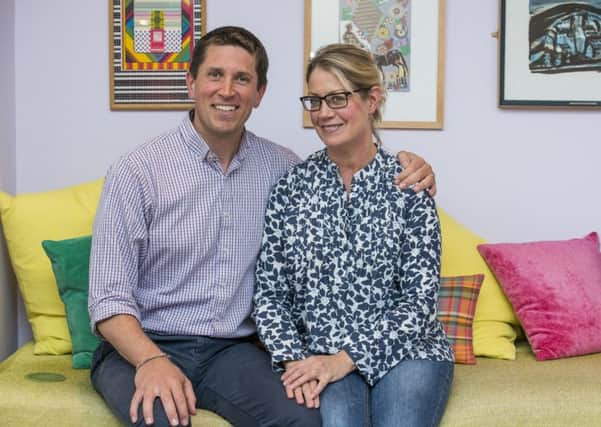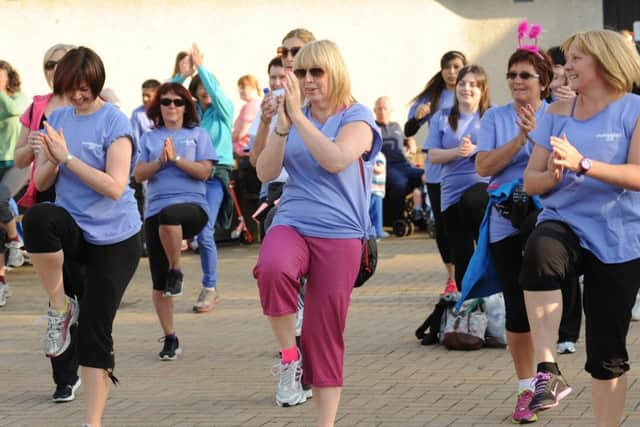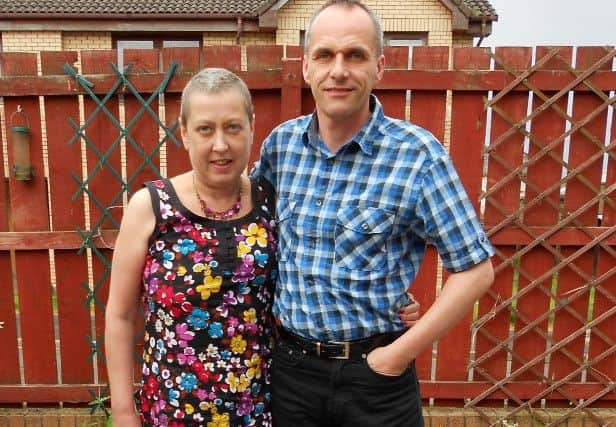What you should (and shouldn't) say to someone with cancer


DON’T: Avoid someone after they have been diagnosed with cancer
“The absolute worst is people who don’t say anything at all,” explains Fiona MacKinnon, from Castle Douglas, who was diagnosed with breast cancer six years ago.
Advertisement
Hide AdAdvertisement
Hide Ad“I also had people crossing the street when they saw me, I think some people don’t want to ask you about cancer because they are worried they will upset you, but it’s worse not saying anything at all, it’s not helping, even coming up and putting a hand on your shoulder can show someone you are thinking of them.


“There were people I considered close friends before I was diagnosed who disapeared into the background, whereas some people who weren’t that close to me are now lifelong friends because they came forward to offer support.”
DON’T: Say “I’m sure it will be fine” or “I know someone who….”
Lorrie Forsyth, centre head at cancer support charity Maggie’s Lanarkshire, said: “For many people cancer treatment will be curative, and even if not, many people are living longer and better with cancer.
“However reassurances like this can show a lack of understanding of the overwhelming uncertainty and fear people with cancer can experience about the future.


“Allowing the person to talk about their thoughts of what lies ahead can be more helpful and opens up a conversation rather than shutting it down.”
Fiona agrees: “I had people say, ‘oh my friend had breast cancer and now they are fine’, but everyone is different and every type of tumour is different. The person down the road with breast cancer is not the same as me.”
Lorrie adds: “In an effort to show empathy, or present a positive example, it’s tempting to share stories we know of.
Advertisement
Hide AdAdvertisement
Hide Ad“Sometimes these can help, but more often people affected by cancer describe feeling these stories are irrelevant, and steer the conversation away from their own unique experience.”


DON’T: Say “be positive”
Lorrie, whis is also clinicical psychologist at Maggie’s, said: “Much easier said than done!
“Someone affected by cancer will be on a process of slowly adjusting to their diagnosis, and to ongoing tests and treatments.
“Good emotional adjustment will involve considering a whole range of feelings, not just positive ones, and to begin processing these, sometimes with support from friends, family or somewhere like Maggie’s.


“As this process evolves, it can be soothing to stay mindful of the present, and recognise that too much time spent in the future or the past may not be helpful.”
“People would say “be positive” to me,” Fiona explains. “But this is not a common cold!. You also get people saying, you can fight this, or you can battle cancer, well noone wants to be in a battle or fight with cancer.”
DON’T say: “I know how you feel”
“Everybody’s experience of cancer and stress is different,” Lorrie says, “and while we might empathise with how difficult things must be, it’s unlikely we can really put ourselves in that person’s position.
“More helpful might be: ‘I can’t imagine how you must feel’, or ‘how are you feeling?’
DON’T say: “You look really well”
Advertisement
Hide AdAdvertisement
Hide AdLorrie said: “We all know that how we look doesn’t always reflect how we feel inside. While a compliment can lift our mood, it can sometimes suggest a lack of understanding of how the person’s really feeling.
“Coupling a compliment with a genuine enquiry about how the person’s really feeling might be more welcome.”
DO: Offer support
“When you are first diagnosed you are in shock, I felt like my body was spinning round. I knew noone who had cancer,” said Fiona.
“I needed someone who could understand, who was able to listen and support me.
“Two of my friends were diagnosed with cancer recently, and I have tried to reassure them that everything they are feeling is normal and also offer them practical advice such as taking a notebook to clinic appointments and telling me not to Google, or to go on random American websites.”
DO: Suggest they get support from charities
Fiona, who now campaigns to raise awareness for Breast Cancer Now said the charity’s support was invaluable to her after her diagnosis.
Lorrie emphasises: “It’s so difficult knowing the “right thing” to say when someone we care about has cancer. Perhaps it’s heartening to know that sometimes what means the most to people is not what we say, but how we listen.”
Health care providers should also be careful of how they deliver a cancer diagnosis.
Advertisement
Hide AdAdvertisement
Hide AdProfessor Gerry Humphris, University of St Andrews and chair of the research committee of the European Association of Communication in Health Care, explains: “A health provider should always be aware of how their communication skills can affect another person.
“When delivering the news to a patient that they have breast cancer, health providers should try to ensure that there are no interruptions or distractions.
“They should use compassionate and caring language and avoid jargon and highly clinical terms, which could add unnecessary confusion and distress. The patient should also be consulted as to how much detail they would like to go into.”
For more information about Maggie’s Lanarkshire or to find your nearest Centre please go to: www.maggiescentres.org
For more information about Breast Cancer Now, you can visit: http://breastcancernow.org/